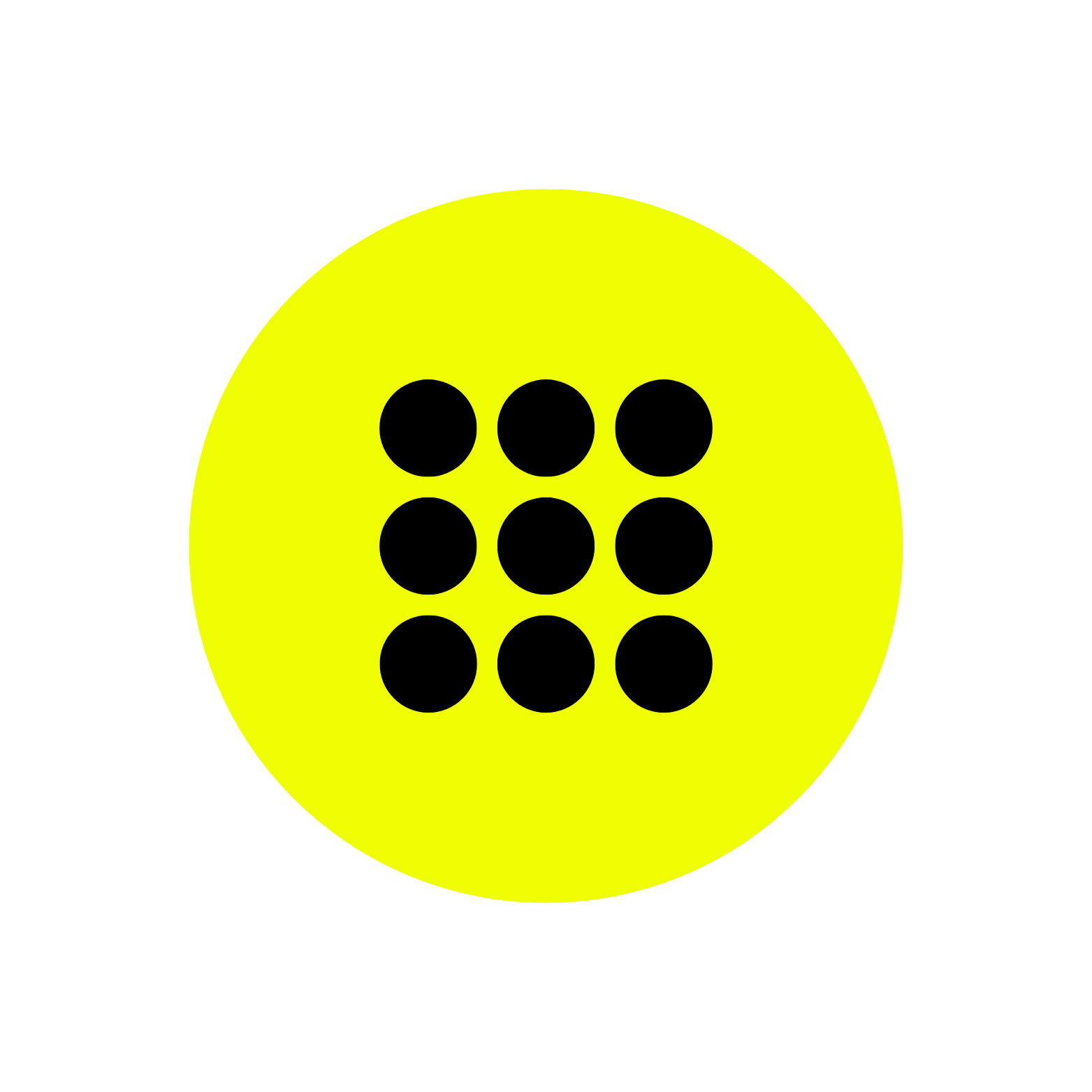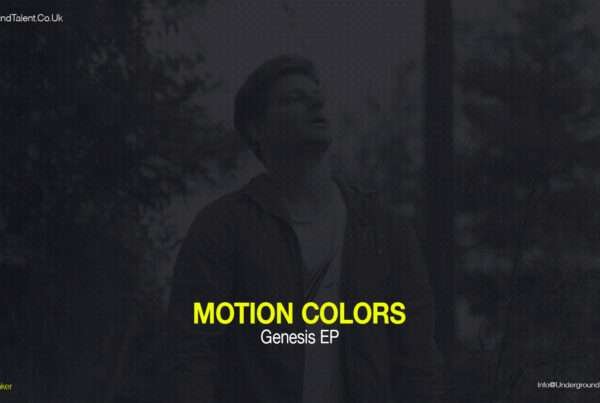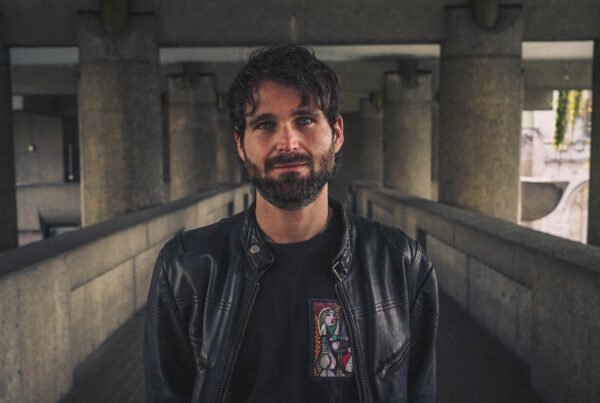Mark Jenkins: A Special Guest Interview | Introduction
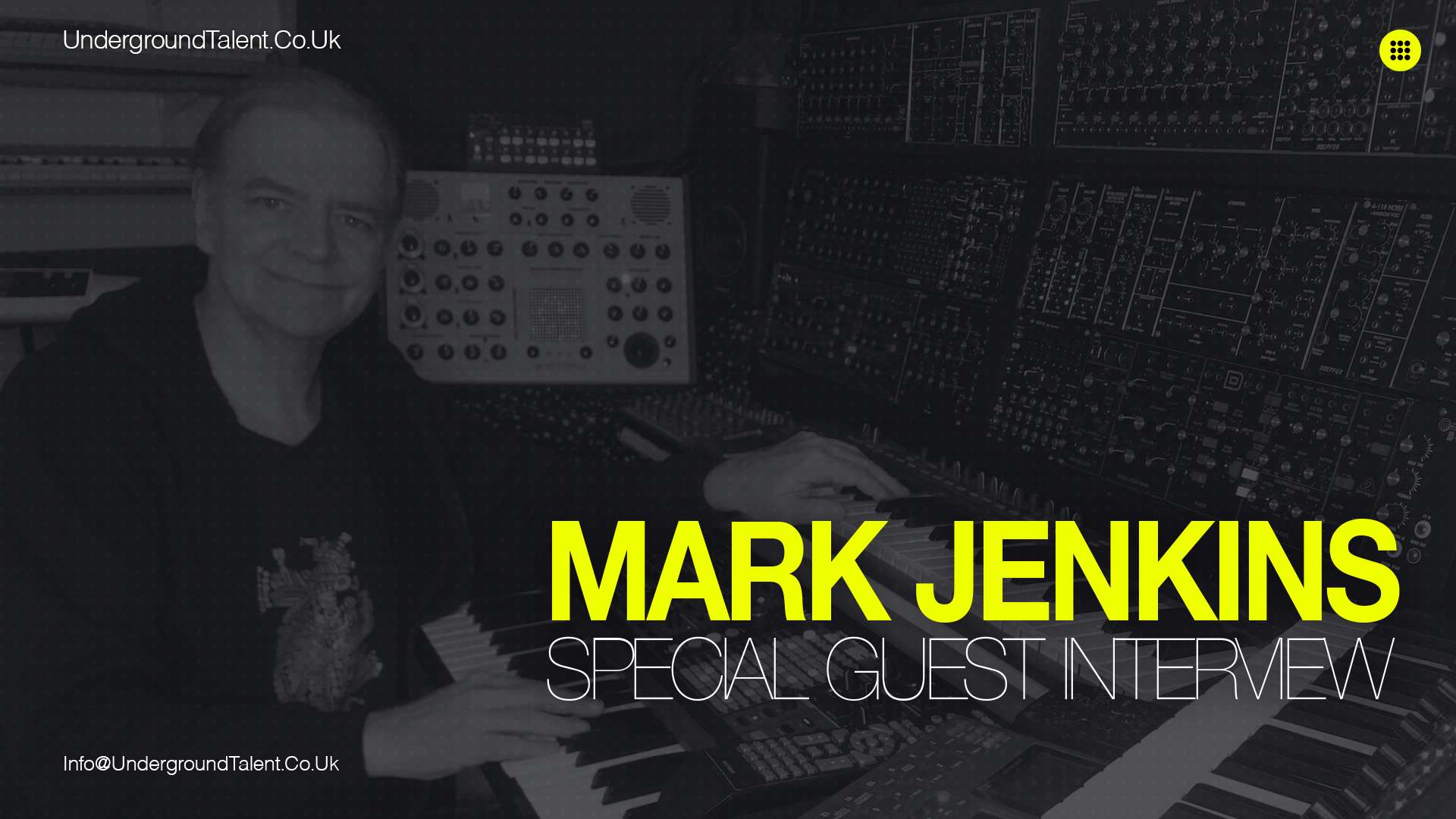
Mark Jenkins is a British musician and music journalist, producer and synthesizer player. He is best known for his work in electronic music, particularly for using modular synthesizers.
Mark Jenkins has been a driving force in electronic music for over four decades. He worked on music magazines and weeklies including Melody Maker, interviewing prominent musicians and reviewing new instruments as they appeared.
Jenkins has released many solo albums, including “Space Dreams” sold by the London Science Museum, “This Island Earth” composed in the UK and the USA, and “Analog Archives“. He has also collaborated with other musicians, including Damo Suzuki from Can, David Jackson from Van Der Graaf Generator, Steve Jolliffe from Tangerine Dream and more.
Mark Jenkins: Space Dreams & Sequences
Throughout his career, Jenkins has been a master of analogue synthesis, amassing an impressive collection of vintage equipment and designing his own modular synthesiser systems for use in recordings and live performances. His music has been featured in TV programmes worldwide and he gave talks and workshops at the UK’s National Exhibition Centre for TV’s “The Gadget Show”.
Jenkins is also an accomplished author having written several books on electronic music and technology, such as “Analog Synthesizers” and “iPad Music“. He’s taught workshops on music technology and modular synthesis at universities and music schools around the world. He has performed around the UK and in France, Germany, Holland, the USA, Brazil, Russia and China.
Today, we’re thrilled to have Mark Jenkins at Underground Talent for our Special Guest interview series to discuss his unique perspective on music production, collaborations with other artists, interests, and what the future holds for this pioneering figure in electronic music. Let’s dive in!
Demo by Mark Jenkins On iPad Analog Synth Sunrizer (Horizon)
Don’t Miss: Fossil Archive aka Roberto / R.M.K. @ Special Guest Interview
Interview with Mark Jenkins
Can you tell us about how you first got into music, and what initially drew you to electronic music in particular?
I used to listen to pop music on the radio and watch TV shows like “Top of The Pops” on BBC 1. But I couldn’t say I ever felt inspired to get involved until I saw Mike Oldfield performing “Tubular Bells” on BBC2. The repetitive patterns and developing melodies really pulled me in. I bought a guitar but didn’t really get on with it.
Within a couple of months, I heard a Tangerine Dream improvised session on the John Peel show. That had the same kind of impact on me, and synthesizer seemed to offer an easier way to get into creating sounds and textures, though that proved to be an expensive pastime.
Many musicians have talked about the connection between music and spirituality. How do you think music relates to spirituality, and what role does it play in your own spiritual practice?
Music is a powerful way of bringing up feelings and emotions and Mike Oldfield, who had a troubled childhood, was a master of doing that. I’m always trying to make music dramatic and expressive and even went through a period of creating what’s often termed “new age” music specifically for relaxation and meditation. I found it easy to compose but difficult to mix – in 30-minute pieces of meditational music it was just too easy to fall asleep…
Don’t Miss: Techno Loops V1: High-Quality Analog Loops for Music Production
Outside of music, what are some of your hobbies and interests? How do you find the balance between your creative work and other aspects of your life?
It may sound a bit one-dimensional but I don’t do much which isn’t music-related. But firstly that’s the wonder of being able to do your pastime for a full-time living, and secondly, it’s a very wide field. As well as composing and recording I’m giving live concerts and workshops, interviewing musicians and reviewing concerts, writing books and magazine features, creating sleeve designs, making websites and content for social media, creating promo videos and backing videos, and so on.
I do like movies including mostly science fiction themes, but played for some years in a mediaeval band so also have an interest in Viking history. For some years I wished I could develop an outlet in visual arts, and while I didn’t achieve anything much with early computer graphics, now with the launch of Artificial Intelligence artwork I’m creating a lot of material, it’s great fun trying to direct the graphics programmes to see what will come out.
You’ve written several books on electronic music technology, including “Analog Synthesizers” and “iPad Music.” How did you approach writing these books, and what do you hope readers will take away from them?
When I was a full-time music magazine journalist I wrote many sections of other people’s books, and around 1995 was at the peak of collecting analogue synths with examples from almost every manufacturer. I proposed a book on the subject to a German publisher but the cost of translating it proved too high. Some years later it was published in the UK as “Analog Synthesizers” and has been selling ever since (the current edition is from 2019 and is available through Amazon worldwide). That book aims to give an entire history and background t analogue synths, their designers, manufacturers and players, and to offer advice on buying and using any type of analogue synth.
“iPad Music” aimed to do the same for the iPad – I created the world’s first all-iPad CD “The iPad Album” in 2010 some way ahead of Gorillaz who had an album with some iPad input to it – and at the time I performed concerts including in the USA for an all-iPad setup. But that market area developed very quickly and so that book is only still topical in general terms.
Later on, I printed and distributed my own books as ZyXyZ Books. In 2020 I marked 50 years since the first album releases of Tangerine Dream, Kraftwerk and Klaus Schulze with three large format softcover books. They sold out several times but were then hampered a little by COVID cost increases and shipping problems, but they’ll be revived along with other new titles soon.
Read Also: Techno Sample Pack: Unleash Your Creativity with Techno Shots
Mark Jenkins: World First User Review by Analog Synthesizers
In your book “Analog Synthesizers”, you discuss the importance of tactile control and real-time interaction in analogue synthesis. Can you elaborate on why you think these aspects are so crucial to the creative process?
Playing synthesizers has the advantage that a wonderful, perfectly-formed sound can come from a single press of a key, unlike the guitar. But after some time you realise that the expressiveness of a guitar or violin is still needed. For a long time, synthesizers didn’t have this expressive control, but it’s easier to achieve these days with MPE (MIDI Polyphonic Expression) equipped controller keyboards.
Laptops can do a lot, but there’s nothing to match having a modular or similar synth system, and being able to give real-time expression to a piece of music – it’s also more interesting to watch for the audience than looking at the back of a laptop lid…
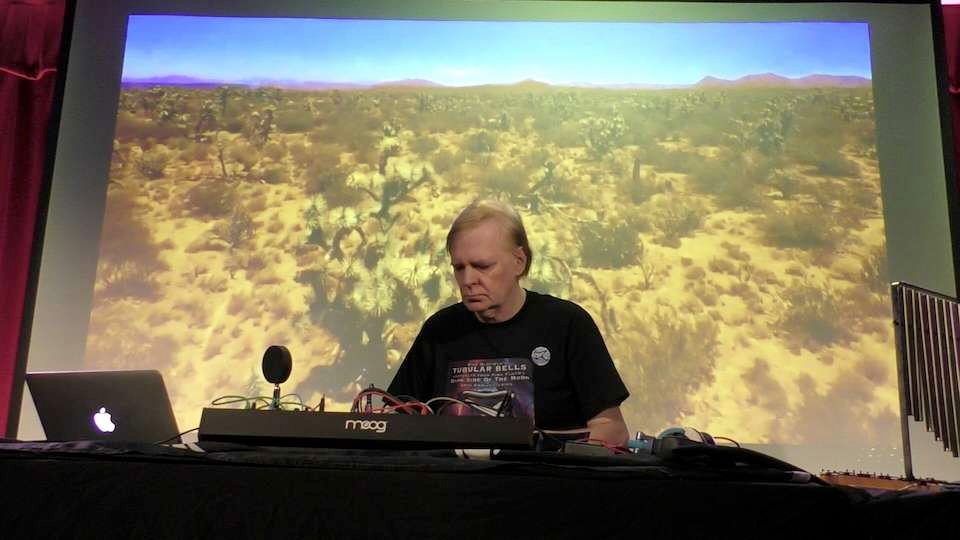
Mark Jenkins
You’ve also taught workshops on modular synthesis. Can you describe your teaching philosophy, and what do you think are the most important concepts for beginners to grasp when learning about synthesis?
The workshops I’ve taught more or less follow the layout of the “Analog Synthesizers” book. First understanding the nature of sound in terms of physics, then how those sounds are created electronically. Then a detailed look at different synth types including modular systems. Finally, a look at the manufacturers and players, what synths give the best type of expression for your preferred style of music, and what to do when they break down…
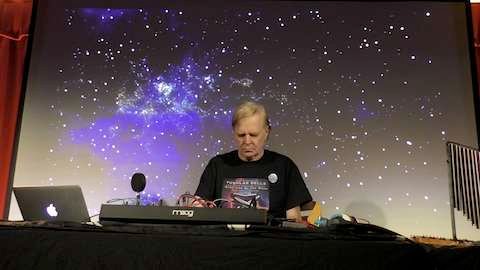
Mark Jenkins
Modular synthesis can be an intimidating subject for newcomers. How do you approach breaking down complex concepts and making them accessible to students?
The approach really dictates itself as you look at various modules and how they work together. Bob Moog’s original flow on the MiniMoog from oscillators to filters to envelope shapers still applies as well as anything else.
How have you seen the technology and tools used in electronic music production evolve over the years, and how do you incorporate these changes into your teaching?
It’s a steady progression but has cycles imposed upon it. When digital synths like the Yamaha DX7 appeared we were all keen to offload our analogue gear, little suspecting that it would become in great demand years later. The early modular synthesizers were abandoned, and now modular is much more affordable and popular than ever before. It’s like vinyl and cassette having a resurgence, once you have a big enough market of people looking back nostalgically, a cycle can being all over again.
At one stage I cut down my studio to just three iPads, which was great for touring, but over the years it built up and is now pretty monstrous again…
What do you think are the most important skills or qualities for someone interested in pursuing a career in electronic music, and how do you encourage your students to develop these skills?
Well, I don’t think there are any careers in electronic music – since the innovators Tangerine Dream, Vangelis, Jean-Michel Jarre and Kraftwerk appeared, no major artists have joined them. There are a few like Schiller coming from a chart pop/ambient background. But what you can get into is what DJs call “electronic music”, simple dance beats with simple sequencer patterns and some vocals. If not a performer you could work towards becoming an engineer and producer working with electronics all the time, but with an awareness that the majority of work is still in pop, rock and dance music.
Read Also: How to Promote Electronic Music | 10 Ways For Beginners
You’ve also worked with artists like Steve Jolliffe from Tangerine Dream and others who are known for their innovative approach to electronic music. What was it like collaborating with these musicians, and how did you bring your own unique perspective to their sound?
I did some recording and performing, and also staged concerts for various members and ex-members of Tangerine Dream, Van Der Graaf Generator, Can, Gong and many others, and played concerts as part of White Noise. It’s always great to bounce your musical ideas off other musicians. I also particularly like the way an acoustic instrument sounds over the top of a bed of electronics – there’s nothing more boring than a piece featuring synthesizers, synthesizers and more synthesizers.
So I did some recording with Steve Jolliffe on flute, and have a project with a cellist called “Cellistica” in which we keep the cello sound very straight and classical, not processing it with electronics, and play our own compositions as well as pieces by Pink Floyd, Yes, Vangelis, Philip Glass, Gary Numan and others.
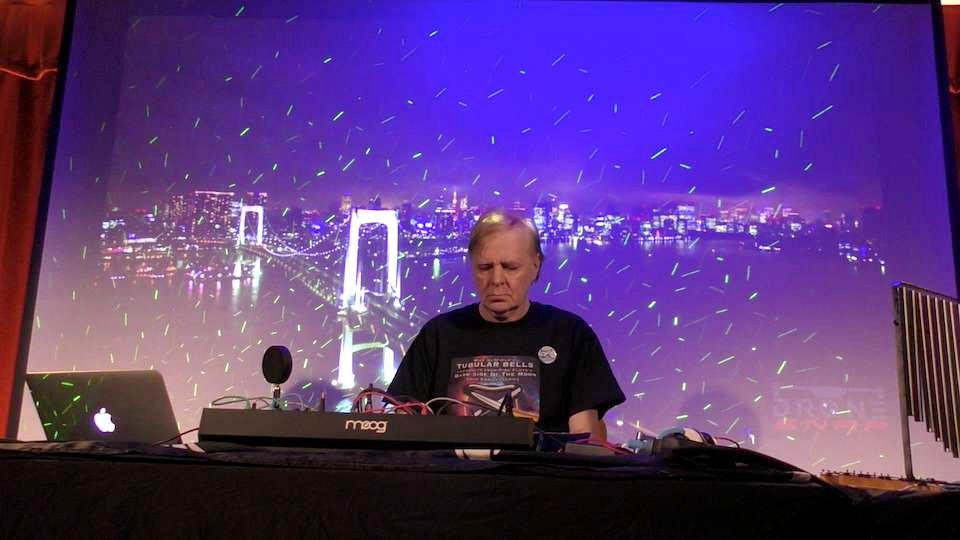
Mark Jenkins
You’ve been working for almost two years on the “Modular Sessions” CD releases, how did that come about?
At the start of the COVID lockdown in the UK, many projects had to be put on hold and I had musicians telling me they couldn’t even rehearse with their bands any longer, let alone get anything recorded or performed. So I had the idea of collaboration by internet, not just to multi-track pieces but to create entirely unpredictable collaborations. I created a CD called “Isolation” with around 15 musicians from the UK, USA, France, Germany and Australia exchanging musical segments, and that worked out well.
So since then, we’ve issued a CD “Modular Sessions” every month, just in a short run of numbered copies, so musicians can show what they’ve been doing. Of course, we’re out of lockdown now but the series continues with various content from earlier collaborations and live performances.
You’ve worked on minor film and theatre pieces – how does creating music for film differ from creating standalone albums, and what unique challenges does it present?
I always like working to a brief because it brings up new challenges. Of course just as you’re getting interested you run up against the limitations of the brief in terms of length or style, so you can’t go mad when creating a soundtrack for film or theatre.
I’d enjoy some jobs like Tangerine Dream and Terry Riley used to get where directors only show them a rough script and they create music before the filming is done. I always feel sorry for composers who have obviously worked hard to get the expression in the third phrase for the second flutes just right, but then their music is swamped by a car crash, yelling and machine gun fire…
Read Also: Myths About Room Acoustics Explained
Your expertise in analogue synthesis is well-known in the electronic music community. How do you think analogue synthesis differs from other forms of electronic music production, and do you prefer to work with this technology?
I love analogue but there’s plenty to be done with digital, sound sampling, granular synthesis and other methods of sound creation. I just don’t like FM synthesis much, it’s too sterile at first until you add a lot of motion to it, and then it just ends up sounding analogue…
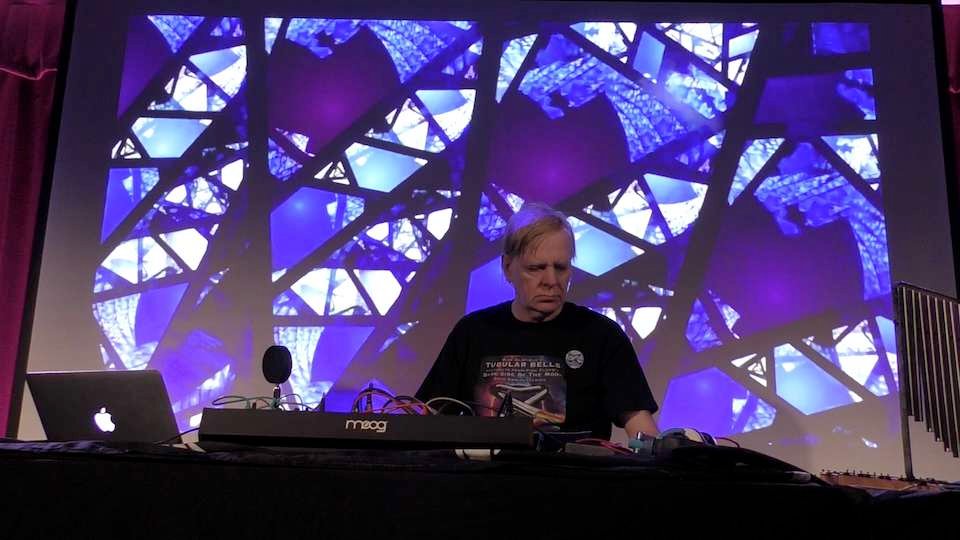
Mark Jenkins
Analogue synthesis seems to be experiencing a resurgence in popularity lately. Why do you think this is, and what advantages do you think analogue synthesis has over other forms of synthesis?
These things go in cycles, as I mentioned. Younger musicians hear about what was achieved in the past and want a chance at doing the same thing. Happily, analog synthesizers particularly with small Eurorack systems became very affordable.
At the same time the older players who moved on with “the latest thing” also become nostalgic for the instruments they started with, and begin to look in their cellars in the hope of finding any instrument they didn’t sell years ago…
Mark Jenkins: Erica Synths Syntrx Review
Many electronic musicians today use digital tools and software to create their music. What are your thoughts on this trend, and how do you think it affects the overall sound and direction of electronic music?
Most music production has been computer-based for some time now, but that doesn’t prevent musicians from inputting “real“ instruments and “real” performances. The coming trend though is Artificial Intelligence compositions, but I don’t think that will trouble “real” players for some time. The competition will be with those who create simple pop/dance music – but that has always sounded simple and robotic.
But somebody is going to be out of work – in the same way, that “poet” used to be a full-time job and now isn’t. I’m guilty of doing the same to graphic artists who now will be getting less and less album design work.
Where do you see electronic music heading in the future, and what role do you think analogue synthesis will play in shaping its evolution?
The Artificial Intelligence thing for lyrics, then compositions, then human-sounding vocals are going to affect all styles of music (it will be easy soon for an AI to create classical-sounding music too). Musicians can stay ahead I suppose by giving good live performances.
Don’t Miss: Techno Events: How to Plan & Organize the Perfect Techno Party
You’re well known for your expertise in analogue synthesis. How do you approach working with this technology, and how does it influence your creative process?
Analog is very immediate but also has hidden depths, you can go down a very deep rabbit hole, particularly with modular system sounds. At that point analogue starts to sound like digital, or FM sounds, so you can blend the two and add other techniques like granular synthesis or sound sampling. You just have to be aware of your potential audience – a lot of listeners to pure electronic music do mostly like analogue textures.
Your music often features complex, layered soundscapes. Can you talk in more detail about your approach to composing and arranging these textures?
Perhaps surprisingly I don’t do a great deal of sound editing. It’s faster and easier if you want a particular texture to appear in your sounds, to layer another synth or another voice to make that combination.
Hans Zimmer taught me that – we were talking about EQ and he said “If I want something to sound brighter, I just add another layer of flutes on the top”. I like to work that way, even if it means 60 or 70 layers are needed in a piece.
Mark Jenkins: Live Improvised Berlin School Modular Synth Music
Many of your albums have a distinct sci-fi or futuristic vibe. What draws you to this type of imagery, and how does it inform your creative process?
It may seem obvious but even from the early days of electronic music, there has always been this spacey or “kosmische” vibe. I find the big ideas and big inspirations are always in sci-fi films – look at “2001”, “Close Encounters”, “Robocop” (not just a shoot-’em-up but a deep insight into human individuality), the recent Kazakh-produced series “Infiniti”, and many more.
But science fiction can bring out other more introspective subjects too, and I’ve created pieces (particularly for the “Modular Sessions” series) inspired by the sociology of “Brave New World”, the emotionalism of “Solaris” and many more.
Read Also: Brutalism by Erald (Free Sample Pack)
In addition to your music, you’ve written several books on electronic music technology and taught workshops on modular synthesis. How does teaching and sharing your knowledge with others fit into your overall creative practice?
My father was a teacher and it’s always rewarding to share what knowledge you have accumulated with others. That always gives me a chance to focus my own understanding too, so often some new ideas and composition processes come out of teaching courses and workshops.
You have written for various music publications over the years. What initially drew you to music journalism, and how has the industry changed since you first started writing?
As I started getting interested in electronic music, a major source of knowledge was from the weekly and monthly music publications so a chance to go and work on them was ideal for me. It meant meeting all the greats – Tangerine Dream, Jean-Michel Jarre, Klaus Schulze, Depeche Mode, Karlheinz Stockhausen, Duran Duran, Philip Glass, Mike Oldfield and scores of others – and seeing all the new instruments as they appeared.
When the economic situation killed off many magazines I switched mostly to writing music books, and now I’ve mixed in some writing for internet magazines too. Inevitably they’re the future as printing and circulating magazines on paper dies out.
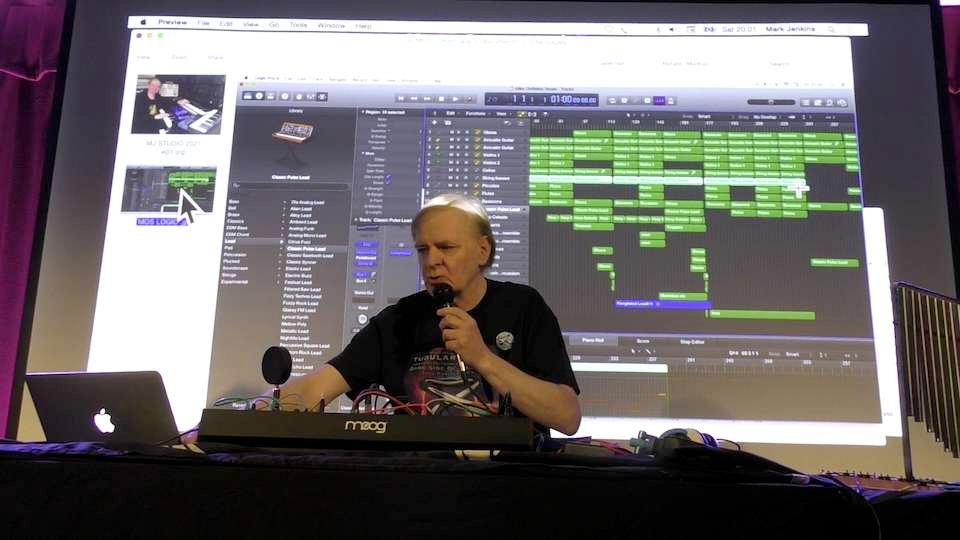
Mark Jenkins
You have performed live in various venues around the world. How does your approach to performing differ from your approach to writing and recording music?
There’s an entire book to be written on that subject. Live performance of electronic music has always been a challenge because it has always been more studio based. Even Tangerine Dream turned in stage performances quite different from their studio recordings. All I can say is that you have to try to keep up.
Over the years I have used totally live MIDI setups, DAT as a backing tape, live sequencers, trying to play songs from the album, improvising and playing nothing from the album, performing solo or as a duo or band lineup, playing a ton of equipment, playing from iPads, and many other combinations. I do like playing live. But I do feel that someone playing jazz flute in a skiffle band probably has an easier time.
Download Free: Techno Sample Pack: 64 One-Shot Samples + Producers Tips
Your label AMP Music was formed in 1983. What led you to start your own label, and what challenges have you faced as an independent musician and label owner?
Although there was a lot of interest in electronic music, not many major labels were issuing it. Some appeared to be catching on and I sent a few demo tapes around, but it turned out they were really reacting to the growth of the New Age market in the USA and wanted music for piano, flutes and acoustic guitar. So the idea of a label was to be able to put out what you want, but of course, sales and marketing are very hard.
After a few LPs, it was time to issue CDs, and that went on for some years. When download appeared I did have everything available by download, but I’ve stopped that now because of the poor payment deal for musicians from the likes of Spotify. Now everything is on CD, including re-issuing all my older material, so I can keep everything exclusive and collectable and give listeners some sense of real attachment to the musician. I’ll stick with CD until the last CD player on Earth stops working…
Don’t Miss: Cinematic u-he Diva Presets | Metropol
You have interviewed a wide range of artists over the years, from Philip Glass to Duran Duran. Is there a particular interview that stands out to you as being particularly memorable or informative?
The first thing to say is that everyone I met has been tremendously nice and welcoming. Popular artists have often done half a dozen interviews in a row by the time you meet them, answering questions about their personal lives and where they buy their shirts, so they’re often tremendously grateful to be asked some questions actually about their music. When I interviewed Steve Hillage about his “For To Next” album he said I was the only journalist to ask why his album title was a line of computer code. I met John Foxx at his synthesizer-packed Garden Studio and asked who had put a bit of eBow on his album, and he looked pleased…
Jean-Michel Jarre, and Mike Oldfield who generously showed me around his studio setup on more than one occasion, all very welcoming. The most interesting was probably Karlheinz Stockhausen, whose musical experiments inspired everyone from Can and Kraftwerk to Tangerine Dream. He explained how he was controlled by beings from Sirius, and how his current cycle of albums at the time would be finished “when I’m 120 – of course I will still be a young man”.
Of those I missed, I would have liked to meet Vangelis, who never did a lot of interviews and Kate Bush who as a singer was far in advance of everyone in the world. Currently, I really want to interview Nolwenn Leroy, well known for 20 years in France for her mix of Breton folk and pop music (I like folk music as well as electronics and played for some years in a mediaeval rock band).
Don’t Miss: How to Stop Procrastinating & Finish Your Tracks?
Your latest project is the ZyXyZ Books imprint, which includes “Tangerine Dream: 50 Years – The Ultimate Discography,” “Klaus Schulze: 50 Years – The Ultimate Discography,” and “Kraftwerk: 50 Years – The Ultimate Discography.” What inspired you to create these books, and what kind of research and writing process did you go through to put them together?
I created the “50 Years” books just before lockdown and they sold out several times. The increased cost of print and shipping post-COVID has put them on hold at the moment, but there will be new titles and possible re-issues soon. Of course, there are a lot of 50th anniversaries coming up…
Don’t Miss: Techno Sequences for u-He Diva. Designed by Erald.
You’ve collaborated with other musicians over the years, including performing with David Vorhaus as White Noise. Are there any collaborations that stand out to you as being particularly rewarding or challenging?
I’ve enjoyed all the recording and live performance collaborations I’ve done, because electronic music can be very solitary, and always benefits from input from more than one person. My duo “Cellistica” with Hannah Chappell on cello is great fun, we’ve made cover versions of Pink Floyd, Yes, Vangelis, Philip Glass, Mahavishnu Orchestra and others as well as improvising and composing original pieces. Hoping to do more of that soon.
Read Also: 7 Music Industry Tips for Successful Networking
What’s next for you? Are there any upcoming projects or performances that you’re particularly excited about?
For 2023 I’m mostly touring my CD “Mike Oldfield’s TUBULAR BELLS for the MOOG SYNTHESIZER” and adding half of Pink Floyd’s “Dark Side of the Moon” for the 50th anniversary of both albums. There’ll probably be 30 dates across the UK in the end and I’m adding dates in Germany and maybe France.
The “MODULAR SESSIONS” monthly collaborative CD releases will continue as well as new book titles. For 2024 I have a different “50 Years Of…” tour, I’ll leave everyone to guess what that might be…
Vangelis Tribute from Modular Sessions 6 by Mark Jenkins
You’ve had a long and successful career in electronic music. What do you see as your next big challenge, and what new horizons are you hoping to explore in your music?
You have to be on your toes all the time, though I’m not sure the experience is worse for electronic music than for any other kind if you want to promote your music commercially. You have to watch the new trends like AI, the battle for release formats between download, CD, vinyl and cassette (who’d have thought a few years ago that cassette would come back?) and look at options like streaming concerts – charged, or free as a method of promotion? At the same time looking at new instruments as they appear – not a problem say for a surf music band or a blues band.
Read Also: Stop Being a Perfectionist by Lex Bunker
What projects are you currently working on, and what can fans expect to hear from you in the near future?
“Modular Sessions” monthly collaborative CDs as mentioned – an extracts video for each album appears on my YouTube channel – and more books. I’m going through my back catalogue of albums and have more than a dozen waiting to be re-mastered and re-released. Plus several newly completed albums covering a whole range of electronic music styles including a few surprises. All will be revealed on my Facebook page.
Thank you for the questions!
Read Also: Room Acoustics: Understanding Sound Waves and Reflections
Connect with Mark Jenkins
Final Thoughts on the Special Guest Interview with Mark Jenkins
Mark Jenkins has been a true pioneer in the world of electronic music, with a career spanning over four decades that’s seen him push the boundaries of what’s possible with analogue synthesis. It’s been a pleasure to speak with him today and gain insights into his unique perspective on music production, his collaborations with other artists and his plans for the future.
We’d like to extend our heartfelt thanks to Mark for sharing his time and knowledge with us, and for being such a gracious and engaging special guest. We wish him all the best in his future endeavours and can’t wait to see what new musical innovations he has in store for us.
Don’t Miss: Rave In London? Rave Responsibly.
Did You Enjoy the Interview with Mark Jenkins? Connect with Underground Talent & Let Us Know!
You can find us on Facebook, Soundcloud, and Instagram. We encourage you to share your thoughts and feedback on this article, and we look forward to continuing to educate and inform you on this important topic.
You can find us on, and, and don’t hesitate to reach out to us if you have any questions or comments by email at info@undergroundtalent.co.uk.
Don’t miss out on the latest and greatest underground talent! Subscribe to our YouTube channel now and stay on top of the freshest and most exciting new acts in the techno scene. Click the subscribe button and join our community of techno music lovers today!
And Always Remember…
Have Fun & Be Creative!
